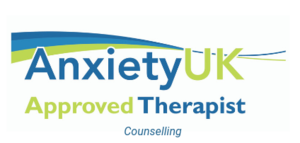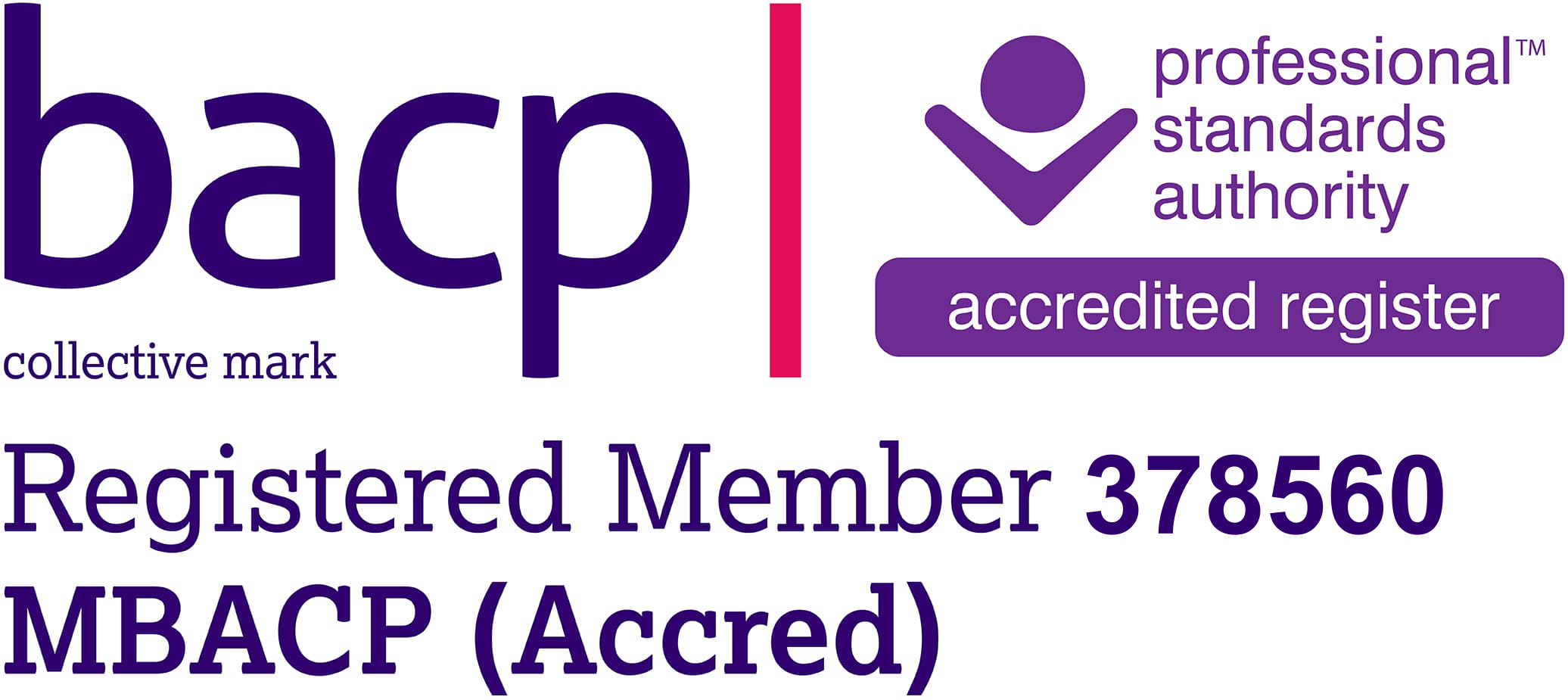I am an EMDR UK trained therapist based in Rickmansworth and I can guide you through, enabling you to process traumatic memories and reduce the emotional distress associated with them.
I have had training from Babeth Rothschild, Janina Fisher, Arielle Schwartz, Bessel van der Kolk, Pat Ogden and Richard Schwartz.
What is Trauma?
Trauma is a natural emotional response to a very stressful or distressing event that can have an impact on a person's ability to cope and function. It may happen after a single incident, or build up over time through repeated or ongoing experiences. Trauma often involves a threat to one's safety, survival and sense of security.
Examples of traumatic experiences include:
- One-off events such as an accident, assault or a natural disaster
- Ongoing difficulties such as an illness, abuse or sudden loss
- Childhood experiences of neglect, harm or disrupted attachment
- Witnessing violence or harm to others
- Livng with ongoing stressors such as poverty, discrimination, unsafe environments, or community violence
- Collective experiences such as war, terrorism, or oppression
What are the signs and symptoms of trauma?
Everyone reacts differently to traumatic events, depending on the type of trauma, as well as the support they have during and after the event. Some people recover naturally, while others may feel stuck in patterns of fear, anxiety, or disconnection, long after the event. When reminders of what happened don’t fade, they can develop symptoms relating to the trauma they've experienced. Some common experiences include:
- Intrusive memories, flashbacks or triggers that act as reminders. Some individuals can loose touch with what’s happening around.
- Nightmares or disturbed sleep.
- Feeling constantly on edge (hypervigilance), easily startled, or unable to relax or even panic attacks.
- Avoidance e.g. staying away from people, places, or situations that bring back painful memories.
- Emotional numbness, this can be feeling detached, disconnected, or unable to enjoy life.
- Changes in mood, from sadness, guilt, shame, irritability, anger, emptiness or hopelessness and even suicidality.
- Difficulties in relationships. This could vary from struggling to trust, feeling distant from others, to totally withdrawing socially.
- Unhealthy coping e.g using alcohol, drugs, overworking, or other behaviours to try to block out feelings.
These reactions are normal survival responses in the event of traumatic experiences. For some people, symptoms ease with time and support. For others, it may be hard to speak of those traumatic experiences and they may develop symptoms such as post-traumatic stress disorder (PTSD) or complex trauma, making daily life, relationships, or work feel overwhelming. Only a small proportion actually develop PTSD.
Childhood trauma and adult life
Trauma experienced in childhood can continue to affect you as an adult, shaping how you see yourself, how you respond to stress, and how you connect with others. Therapy can help untangle these patterns, so you no longer feel controlled by the past.
How do you heal from trauma?
If you’ve experienced trauma, it’s important to remember that your reactions are normal human responses to distressing events. You coped the best way you could at the time and healing is always possible, especially with the right support.
How can therapy help?
Working with a trauma trained therapist can help you safely process painful experiences and begin to move forward. Across trauma models (EMDR, phase oriented trauma therapy, sensorimotor, IFS, CFT), Stabilisation, safety, and regulation come before detailed processing. That’s not preference, it’s evidence based sequencing. Exposure without regulation is destabilising.
How I usually work with trauma:
Many people come to therapy with a strong urge to tell their whole story, especially when they’ve experienced trauma. That makes a lot of sense. Trauma often feels overwhelming and distressing and wants to be out of your system.
The challenge is that talking in detail about trauma too early can overwhelm the nervous system and your body and mind can react as if it’s happening again in the here and now. Because of that we don’t go into detailed descriptions straight away, because that can overwhelm the nervous system before there’s enough safety and support in place. We’ll absolutely work with what happened but first we focus on helping your body and mind feel more steady, so that when we do go there, it’s safer and more contained.
So for this reason, I work with trauma in phases. Early on, we focus on safety, regulation and trust, because going into details too soon can overwhelm the nervous system. We’ll still talk about what brought you here, just in a contained way, and we’ll go deeper when your system has more support.
So in the beginning, we focus on helping your system feel safer and more regulated and on building trust between us. We may touch on your trauma in broad terms, just enough for me to understand but we won’t go into graphic detail yet until your mind and body has more support, so it doesn’t become too overwhelming and distressing.
If at any point you start to feel overwhelmed, we’ll slow things down together. And if I pause you or redirect us, it’s not to stop you, it’s to help you stay present and safe. You don’t need to tell me everything all at once for therapy to work. Healing doesn’t come from telling the story faster, it comes from feeling supported enough to process it safely. We’ll move at a pace that respects your system. Nothing gets ignored, it just gets approached when your system has more support.
Healing doesn’t mean forgetting what happened. It means learning to live with your experiences in a way that no longer overwhelms you, giving you space to feel safer, stronger, and more connected.
Approaches to Trauma Therapy
There’s no single “right” way to heal. Different approaches suit different people. In my practice, I may draw on:
- EMDR (Eye Movement Desensitisation and Reprocessing): a structured, evidence-based approach proven to help reduce PTSD and trauma symptoms.
- CBT (Cognitive Behavioural Therapy): to challenge unhelpful thoughts and build new perspectives.
- Integrative and relational approaches: supporting you at your own pace, focusing on safety, trust, and connection.
- Body-based awareness and grounding strategies: I use the Polyvagal theory to help regulate your nervous system and ease anxiety, customising strategies to your unique needs and preferences.
Trauma Training
I am a trauma trained therapist. I have received specialist training in trauma treatment models, trauma theory, somatic approaches, and polyvagal-informed practice. My work is informed by intensive learning with leading trauma experts and leading figures in trauma theory and somatic psychology including Bessel van der Kolk, Janina Fisher, Babette Rothschild, Pat Ogden, Linda Cundy and others. I integrate systemic and trauma-informed perspectives to support individuals, couples, and families processing complex relational and developmental trauma.Trauma treatment should only be provided by qualified mental health practitioners who are specialy trained in trauma specific models. That means I can work safely and effectively with traumatic memory, PTSD, complex trauma, and dissociation and I can manage trauma-related risk, dysregulation, and nervous system responses.
My training includes EMDR (Eye Movement Desensitization and Reprocessing and Sensorimotor Psychotherapy. I also integrate other modalities sich as Trauma informed CBT, Internal family systems and transactional analysis.
What is EMDR Therapy?
Eye Movement Desensitisation and Reprocessing (EMDR): EMDR is a specialised therapeutic approach designed to help individuals process and heal from traumatic memories. This method uses bilateral stimulation, such as guided eye movements, to reduce the emotional impact of trauma and promote healing.
- Recognised by WHO and NICE
- Effective for PTSD, anxiety, and other trauma-related symptoms
- Often delivers significant improvements in fewer sessions
EMDR can be used as a stand-alone therapy and is immensely powerful in many instances and sometimes I use it as a complementary therapeutic tool. It's simple and safe and you can find out more about it here:
Eye Movement Desensitisation Reprocessing (EMDR) – PTSD UK
Whether or not you choose to incorporate EMDR as part of your therapy is up to you. All my work is tailored to the unique needs of each individual and designed to make you feel safe and relaxed.
How I Work with EMDR
I practice EMDR therapy in its full, evidence based form, following a structured psychotheraputic approach rather than the technique. I am trained by an EMDR-approved trainer and use the 8-phase EMDR method as outlined by the EMDR Association guidelines. While EMDR is well known for helping process trauma, it works best when safety, trust, and preparation are prioritised. The amount of time spent in each phase can vary depending on your specific needs.
The 8 phases of EMDR:
- Phase 1: History and treatment planning - We start by talking about your history current challenges, and goals for therapy. This helps us plan the work carefully and safely.
- Phase 2: Preparation and stabilisation - This is about building safety and trust because healing happens in a safe and trusting relationship. You’ll learn techniques to manage strong emotions, develop suitable coping skills, explore emotional regulation tools, and grounding strategies to help you manage any strong emotions that might come up during reprocessing. This ensures you feel safe and in control throughout therapy.
- Phase 3: Assessment - We will identify the specific memories or experiences to be processed in this phase. This includes exploring images, negative thoughts, emotions, and body sensations associated with the event.
- Phase 4: Desensitisation - This is the reprocessing phase. While using bilateral stimulation like eye movements or taps, we focus on the target memory. This helps your brain reprocess the experience, so it feels less overwhelming. Strong feelings may arise initially, but your brain's processing system will naturally begin to reduce the emotional charge of the memory.
- Phase 5: Installation - Once the disturbance from the memory has subsided, we strengthen the positive belief you identified in phase 3. This helps you integrate a new healthier and positive perspective about yourself and the event.
- Phase 6: Body Scan - We check how your body feels when thinking about the original memory, noticing any lingering physical tension or discomfort in your body. We will use more bilateral stimulation to clear any remaining residual discomfort. The goal is to release physical as well as emotional stress so your body and mind feel calmer.
- Phase 7: Closure - Each session ends with claming and grounding techniques so you leave feeling stable, safe, and supported, before leaving.
- Phase 8: Reevaluation - At the start of each new session, we assess your progress, notice changes, and plan the next steps. This ensures therapy moves at the right pace for you.
EMDR is a careful, step-by-step trauma informed therapy. We only move forward when you are ready. Safety and support are always the priority. My role is to make sure you’re supported, that you have the tools to stay regulated so you feel safe throughout the process and and facilitating effective therapy, rather than rushing to the “technique” stage. This approach ensures EMDR is effective, safe, and helps you process difficult experiences without retraumatisation.
EMDR is not designed to erase memories but to transform them so they no longer cause you pain and distress. The process is natural and empowering, helping you move forward with a sense of calm, and a more positive view of yourself.

